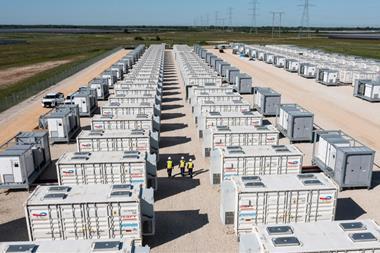Germany’s efforts to enhance its capital markets through the Financing for the Future Act have been accompanied by a delay in finalising regulations for fund investments in renewables. Luigi Serenelli reports
Last month, the German parliament passed the Financing for the Future Act, which partially reforms financial regulations, encourages renewable energy investment, and simplifies access to capital for small and medium-sized businesses. However, the governing coalition of Social Democrats, liberal party FDP, and Greens decided at the last minute to postpone measures for direct fund investments in renewables until the 2024 Annual Tax Act.
The move is to enable the government to work with industry stakeholders to study regulatory and tax changes that could make it easier for funds to invest in renewable energy by removing barriers.
Anja Schultz, MP for the liberal party FDP and member of the finance committee in the Bundestag, told IPE Real Assets that the coalition received feedback from the industry, saying that the supervisory changes foreseen in the Financing for the Future Act would be ineffective without appropriate investment tax law framework. “Therefore, the coalition factions have agreed to comprehensively address measures for the investment of investment funds in renewable energy facilities as part of the Annual Tax Act 2024,” she added.
The government will address both supervisory measures in the German Investment Code and, if necessary, accompanying tax regulations.
Katharina Beck, MP for the Green Party and deputy chair of the finance committee, said that, without the backing of an appropriate tax framework, changes relating to the expansion of investment options for funds in renewable energy systems proposed in the draft of the Financing for the Future Act would have been largely ineffective.
“We have therefore decided, together with our coalition partners, not to define any regulations in the Future Financing Act for the time being. Instead, we have agreed to examine regulatory and tax changes together. The aim is to make it easier for funds to invest in renewable energies through a well-thought-out overall concept,” Beck added.
“We want to attract and direct more private capital to Germany,” said Schultz. ”Further, we prevent tax-motivated relocation of funds to other European countries. This concerns, among other things, venture capital that is crucial for startups, as well as real estate funds and investment funds that invest in renewable energy and infrastructure.”
Industry reaction
German fund industry association BVI welcomed the VAT tax exemption for all investment funds that represented an “immense competitive disadvantage” for German funds. “We cannot understand why the coalition struck down possibilities for investments in renewable energy systems from the government’s draft. This is exactly the declared goal of the traffic light coalition [of Social Democrats SPD, liberal FDP and Greenes],” a spokesperson for BVI added.
Delaying renewable energy investment should be a source of concern for Germany as a business location, according to BVI. “The need for new energy infrastructure, such as solar energy, is immense, and the government is missing the opportunity to attract more private capital to finance the energy transition,” the spokesperson added.
Union Investment also welcomed the expansion of the scope of application of the VAT tax exemption to all alternative investment funds. A spokesperson said the explanation of the government offers now the opportunity to come to a comprehensive and market-oriented solution for investments in renewable energy systems in the legislative process for the 2024 Annual Tax Act.
“It remains to be seen whether the [government] coalition will finally find the strength to adopt the necessary measures so that German real estate funds can also invest in the energy transition,” the spokesperson added.
Union Investment believes that several measures are necessary to achieve the political goals for renewable energy investments. These include removing income restrictions on renewable energy generation for institutional Spezialfonds, classifying renewable energy systems as acquirable assets under investment and tax laws, allowing open-ended real estate funds to invest in renewable energy systems through companies, and permitting the use of property for renewable energy projects by granting a right of use [lease].
To read the latest IPE Real Assets magazine click here.

















